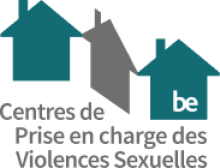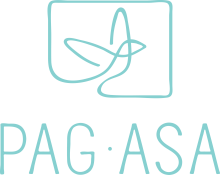
How can you help a close friend or family member who is a victim of sexual violence?
Has anyone you know experienced gender-based violence?
Here is some advice to help you.
How can you help a victim of sexual violence?
What is sexual violence?
- Sexual violence refers to any act or attempted act of a sexual nature performed by someone on another person without that person's consent, regardless of their relationship and in any context.
- Sexual violence can be perpetrated in public or private spaces, by strangers, acquaintances or relatives.
- The vast majority of sexual violence is committed by men, and most of the victims are women, however such violence can affect everyone.
How can you listen and respond to a victim of sexual violence?
Take a deep breath
- It won't be easy to hear, but you need to keep calm.
- Go at their pace and don't rush them.
Reassure them
- "I believe you."
- You did the right thing telling me about it."
- "Thank you for trusting me."
Recognise their strength
- "It's very brave of you to talk about it."
- "You've been very brave."
Remind them that they're not to blame
- "You've done nothing wrong."
- "It's the perpetrator's fault."
Remind them that they're protected by the law
- "The law prohibits such violence"
- "They've no right to do this to you."
Offer to help
- «"Do you want help?"
- "I can help you."
- Don't question their story.
- Don't insist on details of the facts.
- Don't try to minimise the perpetrator's responsibility or trivialise the facts.
- Don't judge their choices or behaviour.
How can you guide a victim of sexual violence?
Sexual Assault Centres (SAC):
- Medical, forensic, police and psychological care
- Possibility of legal review and making a complaint
- Available 24 hours a day, 7 days a week
- Free for everyone
- More info: https://cpvs.belgium.be
If the sexual violence is recent, tell the person to:
- Report it to the SAC as soon as possible after the event (ideally within 72 hours).
- Bring as many items as possible that may contain traces of the perpetrator, preferably in a paper bag: clothing, sheets or bedding, condoms, sanitary towels, toilet paper, etc.
- Try not to urinate, or collect the urine in a jar and take it to the SAC.
- As far as possible, avoid eating, drinking or washing in order to facilitate the search for evidence.
Let the victim act at their own pace, informing them but not pressurising them to take action.
The situation is affecting me and I need to talk about it
You are providing valuable support for the victim, but perhaps you feel helpless yourself? You can use the services provided by professional listeners:
- The freephone number 0800 98 100: : chat and confidential listening for anyone affected by sexual violence, whether a victim, relative of a victim or a professional.
- The freephone number 0800 13 500 for the Flemish Community: reception, telephone consultations, legal, social and psychological support, crisis management, reception and housing, prevention.
How can you help a victim of violence between (ex-)partners?
What is domestic violence or violence between (ex-)partners?
Unlike arguments between (ex-)partners, violence between (ex-)partners is characterised by:
- the desire for domination and control by one person over another
- fear and shame on the part of the victim
- failure to respect the victim's freedom of choice
- its repetitive/persistent and unilateral nature
The aim is to break the other person down and scare them into submission. When violence is used, respect for others and equality disappear.
An (ex-)partner is defined as the person with whom the victim has had or continues to have an intimate relationship.
How can you listen and respond to a victim of domestic violence or violence between (ex-)partners?
Take a deep breath
- It won't be easy to hear, but you need to keep calm.
- Go at their pace and don't rush them.
Reassure them
- "I believe you."
- "You did the right thing telling me about it."
- "Thank you for trusting me."
Recognise their strength
- "It's very brave of you to talk about it."
- "You've been very strong to survive in such difficult conditions".
Remind them that they're not to blame
- "You've done nothing wrong."
- "It's the perpetrator's fault."
Remind them that they're protected by the law
- "The law prohibits such violence"
- "They've no right to do this to you."
Offer to help
- "Do you want help?"
- "I can help you."
- Don't question their story.
- Don't insist on details of the facts.
- Don't try to minimise the perpetrator's responsibility or trivialise the facts.
- Don't judge their choices or behaviour.
How can you guide a victim of domestic violence or violence between (ex-)partners?
Several services can help them break the cycle of violence:
- Centre for the Prevention of Domestic and Family Violence - CPVCF
Specialised support for anyone affected by partner and/or domestic violence
Boulevard de l'Abattoir, 27-28 - 1000 Brussels
Tel: 02 539 27 44
www.cpvcf.org - Centre for General Welfare Services - CAW: Victim Support Service
Advice and comprehensive legal and psychological support
Rue du Poinçon 19a, 1000 Brussels
Tel: 02 486 45 15
www.caw.be/hoe-wij-helpen/begeleiding/schokkende-gebeurtenis/slachtoffer... - The number 0800 30 030
The domestic violence helpline.
Free, anonymous and available 24 hours a day, 7 days a week.
Further information: www.ecouteviolencesconjugales.be - The number 1712
Helpline for anyone with questions about violence, abuse and child abuse.
Further information: www.1712.be
The situation is affecting me and I need to talk about it.
You are providing valuable support for the victim, but perhaps you feel helpless yourself? You can use the services provided by professional listeners:
- The number 0800 30 030
The domestic violence helpline.
Free, anonymous and available 24 hours a day, 7 days a week.
Further information: www.ecouteviolencesconjugales.be - The number 1712
Helpline for anyone with questions about violence, abuse and child abuse.
Further information: www.1712.be















